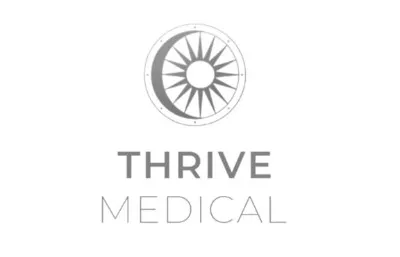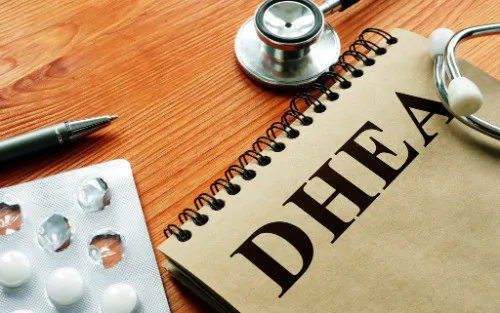Our Preferred Partner -
Introduction to DHEA
DHEA, short for dehydroepiandrosterone, is a hormone produced by the adrenal glands in both men and women. It serves as a precursor to other hormones, helping to produce testosterone and oestrogen, and also plays various roles in women's health.
DHEA levels are highest during young adulthood and gradually decline with age. It is involved in several bodily functions, including metabolism, immune system regulation, vascular endothelial function and the maintenance of overall well-being.
DHEA helps in the production of oestrogen and testosterone as well as other hormones. On its own, it enhances the immune system as well as improves vascular endothelial function. It is mainly prescribed for overall health and to increase energy levels.
DHEA levels are highest during young adulthood and gradually decline with age. It is involved in several bodily functions, including metabolism, immune system regulation, and the maintenance of overall well-being.
One significant role of DHEA in women is its potential impact on fertility. It is believed to contribute to the development of ovarian follicles and support healthy egg maturation. Some research suggests that DHEA supplementation may be beneficial for women with diminished ovarian reserve or those undergoing fertility treatments.
Additionally, DHEA has been linked to the improvement of sexual function and libido in women. It may help alleviate symptoms of sexual dysfunction and enhance sexual desire. However, more studies are needed to fully understand its effects in this context.
DHEA is also associated with bone health. Adequate levels of DHEA have been linked to increased bone density and reduced risk of osteoporosis. It appears to work in conjunction with other hormones, such as oestrogen, to support bone health and maintain overall skeletal strength.
Furthermore, DHEA has been explored for its potential influence on mood and psychological well-being. Some studies have suggested that DHEA supplementation may improve symptoms of depression, enhance mood, and reduce anxiety. However, more research is necessary to establish definitive conclusions.
As with any hormone, imbalances in DHEA levels can have implications for women's health. Excessively high levels of DHEA may lead to symptoms like acne, facial hair growth (hirsutism), and menstrual irregularities. Conversely, low DHEA levels may contribute to fatigue, decreased libido, and mood disturbances.
Book Your BHRT Consultation Today.
Your Bioidentical Hormone Replacement Therapy (BHRT) Questions
Real Questions from Real People — Answered
Straightforward answers to the questions people like you are asking right now about Bioidentical Hormone Replacement Therapy (BHRT).

Medication and bioidentical hormone replacement therapy.
Hi there, I am currently on lorazepam, clonazapan, olanzapine and an antidepressant called mirtazapine would it be ok for me to have bioidentical hormone therapy while on these medications?
To view all the Bioidentical Hormone Replacement Therapy (BHRT) questions, please click here.
Or click here to ask your own question.
Find A Verified Clinic
Trusted Bioidentical Hormone Replacement Therapy (BHRT) Experts, Local to You
Easily connect with qualified, verified professionals for safe, reliable treatment.


Thrive medical
68/69 The Square, Harewood, LS17 9LQ
Thrive Medical Clinic is an integrative health, functional medicine and regenerative aesthetic clinic that offers the very best treatments and services in the regenerative medicine space (longevity).

Chiltern Private London
155-157 Great Portland Street, London, W1W 6QP
The Chiltern Private Health Clinic is an established, regulated and respected medical practice with experienced doctors who have extensive knowledge in health, ageing and preventative medicine
To find a Bioidentical Hormone Replacement Therapy (BHRT) clinic near you, please click here.


